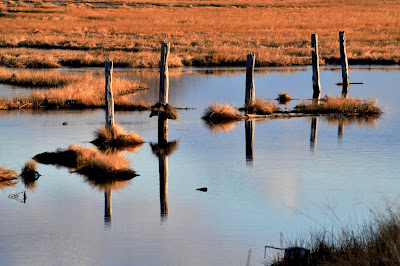It’s remarkable how well people are cooperating with government orders about how to conduct our entire lives. If you’d asked me hypothetically a few months ago to predict how the public would react, I would never have imagined the degree of collaboration we’ve seen so far. Driving back and forth between Maine’s rural mountains and coastal areas each week I see hardly anyone on the roads.
 |
| Oxford Street Shelter (From Portland Press Herald) |
There are exception, however. I noticed homeless men congregating closely together near Portland’s Bayside neighborhood where soup kitchens and shelters are located. They were commiserating in small groups of six or eight on the sidewalks and touching each other frequently. And, we’ve all seen footage of college students at Florida beaches. These two otherwise dissimilar groups are both wholly absorbed in their own desires and oblivious to the needs of the public at large. Everyone else I observed was maintaining government-advised social distance.
During a community TV show “Left & Right” episode in the early stages of the pandemic, my guests and I speculated on the degree to which the issue might become politicized. One guest was sure politics would influence governmental policies but I expressed cautious optimism that political camps would put aside rivalries for the good of the country. That slim hope has shown little fruition, however. At all levels — local, state, national, and international — many politicians and media personalities have been indulging their animosities.
During daily presidential press conferences on the virus most questioners are looking for facts, but there are many caustic, snarky questions from the usual suspects. Never one to let a real or perceived slight go unanswered, the president responds in kind. Resulting exchanges more closely resemble those of squabbling siblings at the supper table than professionals dealing with a crisis.
No one doubts the virus originated in China but it’s given different names. I first heard of it as the Corona Virus, then as COVID-19, then Wuhan Virus according to the city in which it was first detected. Then Trump called it the China Virus around the same time Chinese government officials claimed it originated in the USA — although there’s no evidence to support that. Then Trump-hating media personalities in the US accused Trump of racism for calling it the China virus.
Although some in media and politics have compared the pandemic to World War II, any student of history would consider that a stretch. There was precious little politicization of WWII. Before Pearl Harbor there was, yes, but afterward American patriotism was so strong hardly anyone dared utter a critical remark. Longtime-leftist radio broadcaster and author Studs Terkel wrote a book calling it “The Good War” because everyone in America, regardless of political stripe, agreed that it had to be fought and won. It won a Pulitzer.
Virtually every historical event since WWII, however, has been politicized, so I guess I was naive to hope this pandemic wouldn’t be. There was a short period of non-partisanship following September 11, but it only lasted a week or two. That TV show I mentioned was only a month ago but it seems like a year. I speculated that if I was wrong and partisanship did emerge, whoever was guilty of it would pay a political price on election day.
There are seven months to go before the first Tuesday in November, an eternity in political terms, and I think both sides will pay a price. Recent polls indicate mainstream media, together with their Democrat allies, will pay the most. Expect accusations in the form of snarky questions to escalate and be echoed by Democrats in Congress. Trump will continue his fake news accusations and political polarization will exacerbate.
The $2 trillion bill passed last week was delayed by attempted Democrat add-ons that had no connection to virus relief. Although it was the most expensive piece of legislation in history, still more such bills are predicted before the election. So far, there has been little civil unrest in spite of unprecedented restrictions on public freedoms and increased public distress due to the economic effects of shutdown. Will that continue through April or beyond?
There are signs of fraying. High-end stores have been closed for weeks but lately owners are boarding them up in several cities. Do they expect looting? Will printing $2 trillion cause an inflationary spiral? Will $4 trillion? $8 trillion? There was a mile-long food line in Pittsburgh the other day. Police and food store workers are front-line with medical personnel and they’re getting fatigued.
If we all lose someone in a mounting death toll, perhaps our shared grief will strengthen community bonds. That’s one good thing that can occur in war against a common enemy.














































